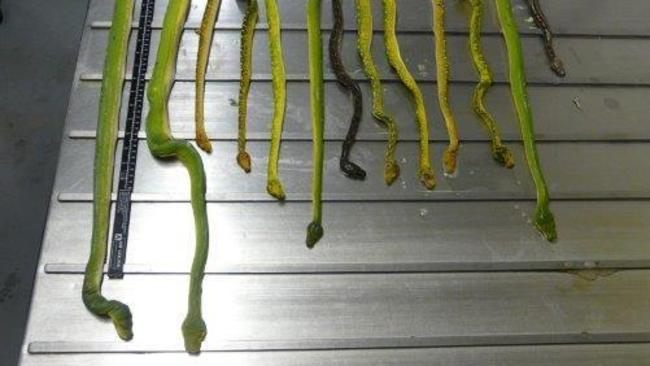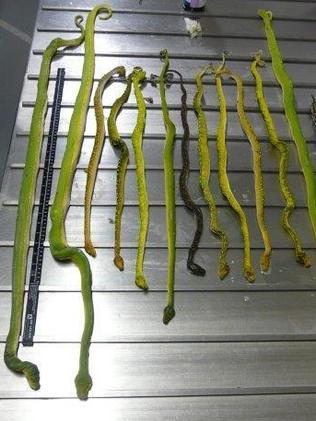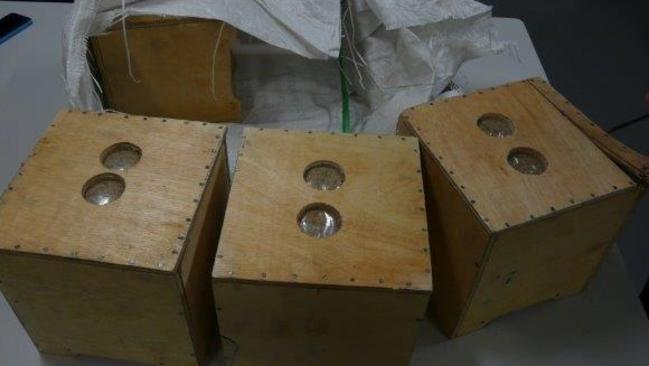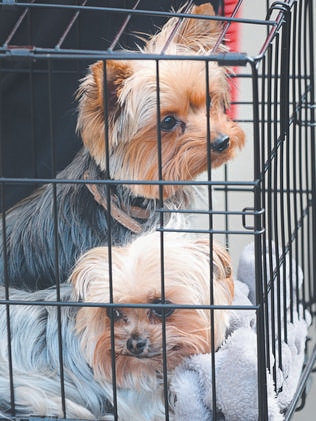Quarantine officers intercept live snakes in package sent from Indonesia to Melbourne
IT wasn’t a horror film, but a package labelled ‘mixed powder’ raised a few eyebrows when authorities discovered what was really on the plane.

QUARANTINE officers were in for a shock when a parcel marked ‘mixed powder’ actually contained 13 live snakes.
The snakes were smuggled to Melbourne in an airmail parcel from Indonesia.
The bright green creatures arrived at the Melbourne international mail centre on the weekend in a tightly coiled in a package innocuously labelled “mixed powder”.
But a routine inspection by biosecurity offices quickly revealed what was really inside.
Department of Agriculture head of pathway compliance Nicola Hinder said it appeared the snakes — one of which was about 1.5 metres long — may have been illegally imported so they could be sold as pets or used for breeding.

“You can see that someone’s gone to quite some effort to have the snakes present as anything other than what they actually are,” Ms Hinder told news.com.au.
She said the snakes have been destroyed and will now be tested to determine their species, their origin, and any pests or diseases they may be carrying.
“But given the fact they’ve come in deliberately concealed obviously indicates to us that there is a market for them, they might be quite valuable, and that they’re not here at the moment,” Ms Hinder said.
“(We will consider) any possible sanctions that can be applied, ranging from presenting a full brief of evidence to the Director of Public Prosecutions and have it be a criminal issue, as well as a range of other sanctions behind that.”
Ms Hinder said live animals were not commonly sent by air cargo to Australia, but officials were more likely to detect reptiles, such as lizards and geckos, as well as live plant material.
“There are a lot of reasons why people might try to bring in things that they shouldn’t,” she said.


“Part of it is very much a personal wish: they really want this (thing), be it a plant to grow or an animal to have in their house. But other parts are to do with the more nefarious sides of the wildlife trade, which is bringing them in as a breeding pair or selling them to pet stores, without actually realising the consequences of what they are doing.”
Australia has tough rules about the importation of live animals, primarily to protect the environment, human health and local agricultural industries — which are worth a whopping $54 billion a year — from foreign pests and diseases.
Last month, the Department of Agriculture famously investigated Hollywood actor Johnny Depp’s pet dogs, Pistol and Boo, when they were not declared at quarantine after arriving on the Gold Coast.
“What people may not realise is that we do undertake screening of international mail that comes in,” she said.
“Certainly the Department of Agriculture looks at it for biosecurity purposes, customs and immigration look at it for their purposes. But we all look for items like this, which is contrary to Australian requirements, and overwhelmingly can cause harm.”




